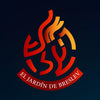
Shabat Bereshit "The beginning"
The first Shabbat after the festival of Sukkot is called "Shabbat Bereshit" because on this Shabbat we already begin to read the Torah from the beginning "Parasha Bereshit" in the book of Bereshit (Genesis).
In some communities, especially those of Ashkenazi origin, it is customary that after the mincha (midday) prayer of Shabbat, one begins to recite Psalm 104 "Barchi Nefshi" (Bless my soul...), Shir laamalot (Song of Ascents) Psalms 120-134) these are customarily said throughout the winter until "Shabbat Gadol" the Shabbat before Pesach.
The connection between "Barchi Nafshi" and "Shabbat Bereshit" is that the Bereshit section recounts the creation of the world, and this psalm describes the wonders of Creation. The fifteen psalms of "Shir la Maalot" (Song of Ascents) also reflect this theme.
The great sages said:
When King David was laying the foundation for the altar, he encountered the abyss, which threatened to rise and flood the world. He then wrote the sacred name of the Creator and threw it into the abyss, causing it to recede 16,000 amot (about 8,000 meters), and it was sealed. When David saw that the abyss had descended too far, he said, "The closer it is to the surface, the better it will water the earth." He then recited the fifteen psalms of Shir la Maalot (The Song of Ascents) and made it ascend 15,000 amot (about 7,500 meters), thus remaining 1,000 amot from the surface. In this way, these psalms became a means of subsistence for the entire world, for without them there would be no water and everyone would die of thirst.
(T. Sukkah 53a)
It should be noted that they should be recited throughout the entire year, since Shabbat commemorates the Work of Creation. However, in the summer, they are replaced by the study of Pirkei Avot (The Ethics of Our Fathers), so they are recited from Shabbat Bereshit and throughout the northern winter.
(Excerpts from Sefer Hatoda, Tishrei)
He Breslev Garden recommends:
